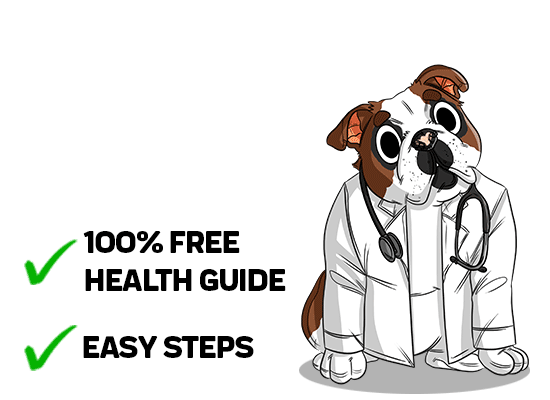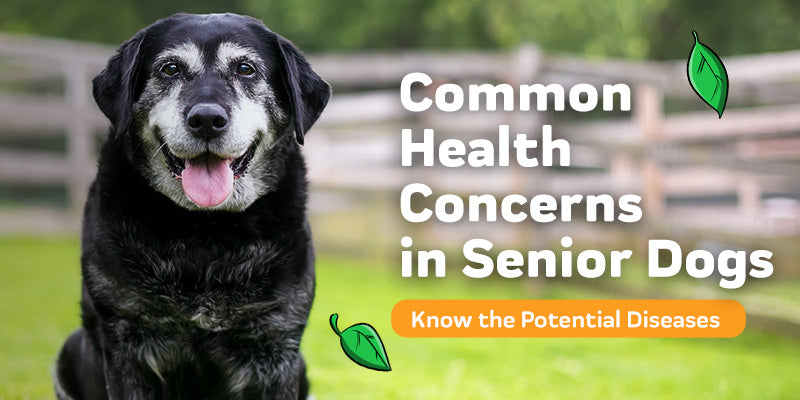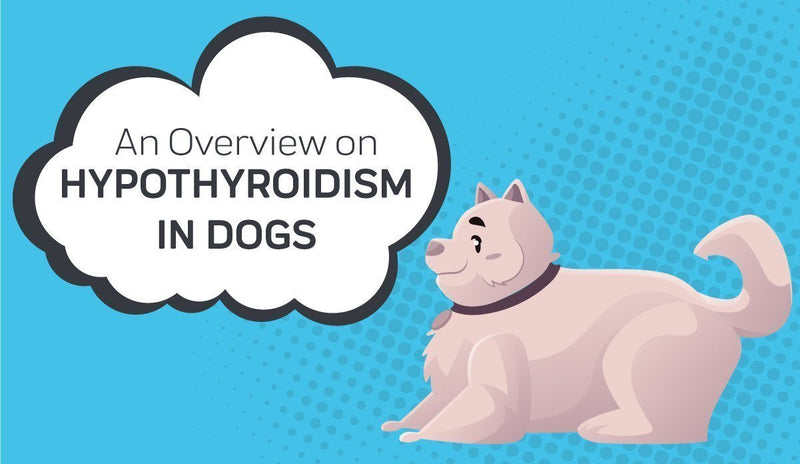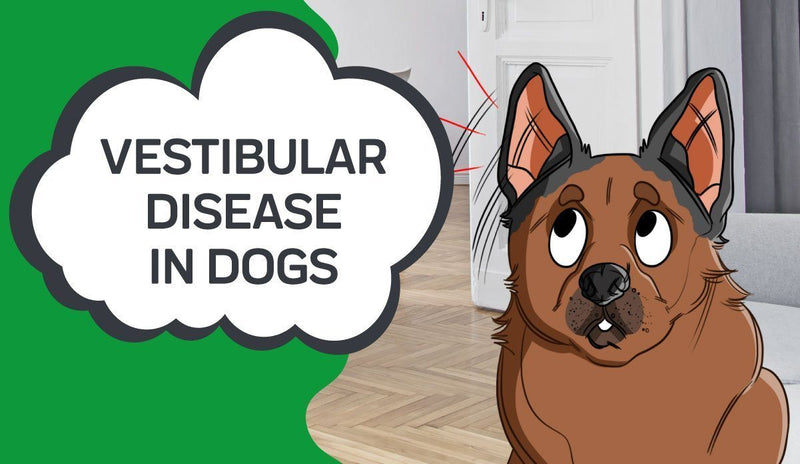- What is Dilated Cardiomyopathy in Dogs?
- How Do Dogs Get DCM?
- Cardiomyopathy in Dogs Symptoms
- Grades of Heart Murmurs in Dogs
- Dog Heart Murmur Qualities
- Symptoms of Heart Failure in Dogs
- How is DCM Diagnosed?
- Treating DCM in Dogs
- What is the Prognosis for Dogs with DCM?

Has your dog ever been diagnosed with dilated cardiomyopathy (DCM) dog disorder? Dilated cardiomyopathy in dogs is a health condition that affects some breed of dogs. If the condition is not diagnosed and treated early, it will lead to congestive heart failure.
Heart disease is one of the leading causes of death in the United States. It is a disease that most humans constantly worry about. Heart disease is often associated with old age and can result in death if it is not diagnosed and treated properly.
Dogs are fairly different from human beings, there are many health conditions that affect dogs. The leading causes of death in dogs include cancer, viruses (Distemper and Parvo), and other factors. Cardiomyopathy in dogs is also one of the leading causes of death in dogs.
Human beings can reduce the risk of heart disease. They can do this by getting more exercise, watching their diet and taking proper medication. With dogs, it is often tough to tell if they are at risk of heart disease.
Most dog owners ensure that their pets eat the right type of food and get enough exercise. This doesn’t mean that their dogs will not develop or reduce the risks of different types of heart diseases.
What is Dilated Cardiomyopathy in Dogs?

What is dilated cardiomyopathy in dogs? Most often dog owners are not aware of this condition. Cardiomyopathy in dog affects the heart muscles in dogs. This reduces the pumping ability and weakens contractions of the heart.
DCM in dogs is an enlarged heart. The heart doesn’t function properly in this condition. Both the lower and upper chambers of the heart are affected. Mostly one side of the heart is more severely affected than the other side.
The heart chambers enlarge in dilated cardiomyopathy in dogs. Congestive heart failure develops due to this condition. In congestive heart failure, the heart is unable to pump a sufficient amount of blood. This causes an increase in pressure. The pressure will result in the fluid leaking out from the lungs and other places of the body.
Breathing is hindered with the accumulation of fluids in and around the lungs. This prevents the movement of oxygen into the bloodstream. With congestive heart failure, dogs start taking short and quick breaths. The dogs do it in an attempt to get enough oxygen to their body. The lack of oxygen and difficulty in breathing will prevent the dog from exercising and recovering from this condition.
Coronary artery disease in humans is often the result of weak heart muscles. This causes heart attacks. It is not the case with dogs. Heart disease in dogs is genetic. Health conditions like DCM are secondary to other causes like an infection or a toxin.
CBD Treat Benefits
The cause of DCM in dogs is often idiopathic. This means the exact cause of the disease is not known. The evidence points to certain genetic factors at play. Most breeds of dogs that are affected are large and middle-aged.
The breeds that are at risk of getting DCM include Boxers, Cocker Spaniels. Doberman Pinchers, Great Danes, and Scottish Deerhounds. Even though it is rare, some juvenile dogs may also develop DCM. Portuguese Water dogs and Young Doberman Pinchers are most susceptible to DCM than other breeds.
Cardiomyopathy in Dogs Symptoms
There are mostly no immediate and obvious signs of DCM in dogs. This often makes it very difficult to identify the disease early. Most dogs may show a reduced inclination towards physical activity. This can be due to many reasons.
In some cases, the vet may notice a light dog heart murmur during a routine physical examination. It is important to remember that the heart murmur is not an obvious sign of DCM. It can be one of the many signs of the disease. Signs like these become more pronounced when the disease starts progressing.
The heart starts to lose its pumping strength as DCM becomes severe. The increase in blood pressure puts pressure on the arteries and veins around the heart. This will result in fluids in the abdomen and lungs. All these factors can eventually lead to heart failure. Fainting, weakness and sudden death are associated with this condition.
The clinical signs of DCM include ascites (abnormal accumulation of fluid in the abdominal cavity), anorexia, cough, exercise intolerance, lethargy, syncope (temporary loss of consciousness often related to insufficient blood flow to the brain), tachypnea (abnormal rapid breathing), and weakness.
Before gaining knowledge about the symptoms of heart failure in dogs, let’s understand heart murmurs in dogs.
Heart murmurs are additional heart vibrations. They are caused when blood flow is disturbed. The blood in the dog’s heart starts flowing quickly through the abnormal and normal valves when a heart murmur develops. This may at times cause an audible sound to the human ear. The veterinarian will be able to identify the irregular heart vibrations through a stethoscope.
Depending on the type and severity of the heart murmur, there are some conditions that may go away on their own. In some other cases, it is often an indication of a more serious underlying condition.
The spectrum of treatment and diagnosis is broad and this makes it important to understand the causes, symptoms, and signs of heart murmurs in dogs.
Grades of Heart Murmurs in Dogs
Just like a human heart, when a veterinarian listens to the dog’s heart through a stethoscope, they will hear a “dub” and “lub” sound. If the dog has a heart murmur the “dub” and “lub” sound will be accompanied with an additional whooshing sound.
The veterinarian classifies the heart murmur in six different grades depending on the loudness of the abnormal sound. The grades don’t have to correlate with the severity of the heart condition.
The grades are often used by doctors as a grouping system to characterize a murmur.
- Grade I – The sound is barely audible.
- Grade II – The sound is soft, but it can be easily heard with a stethoscope.
- Grade III – Intermediate loudness. Most of the blood circulation murmurs are at least a grade III
- Grade IV – Loud murmur radiates widely. It is mostly heard on the opposite side of the chest.
- Grade V – Extremely loud and audible. The sound is heard with the stethoscope not even touching the chest. The vibration is so strong that it is heard through the chest wall of the dog.
- Grade VI – Incredibly loud. The sound can sometimes be heard without a stethoscope.
Dog Heart Murmur Qualities
Apart from the six grades, there are also four main types of configurations and qualities that heart murmurs can have.
These include:
- Plateau Heart Murmurs – They are characterized by a uniform loudness. The murmurs are often associated with aortic valve insufficiency.
- Crescendo-Decrescendo Murmurs – The heart murmurs get loud and then become quiet. They are associated with conditions such as pulmonic stenosis and aortic.
- Decrescendo Murmurs – The murmurs start off quite loud and then get quiet. They are associated with a ventricular septal defect or aortic valve insufficiency.
- Continuous Murmurs – The murmurs are caused due to blood flow from a vessel to a lower pressure system or a high-pressure chamber. The murmurs are often referred to as machinery murmurs.
It is overwhelming and confusing to learn about the six different grades and four different types of murmurs. This is a lot of information. It is best to sit with a veterinarian and choose a treatment plan that will work best for your dog.
The veterinarian will be able to provide proper research and resources when it comes to managing the dog’s heart murmur.
Symptoms of Heart Failure in Dogs
The first signs of heart failure will be revealed on the left side of the dog’s body. This is due to the location of the heart on the body. The left legs of the dog may get weak and then fail completely.
Soft cough, elevated breathing rate, and a severely diminished physical activity are some of the symptoms of heart failure in dogs. Abdominal enlargement due to fluid accumulation is also common in dogs with heart failure.
Extreme symptoms are visible in dogs with advanced stages of heart failure. The extreme symptoms include loss of appetite, inability to lie down, worsening cough, visible discomfort, labored breathing, and finally collapse.
If you notice the dog suffering from any of these symptoms, you should take the dog immediately to the vet. The veterinarian will determine if the cause of the symptoms is heart failure.
The unfortunate aspect of severe heart failure is that it can quickly develop with DCM. Progression to heart failure and the underlying heart issues develop over many months and years.
How is DCM Diagnosed?
The veterinarian uses an echocardiogram to perform the initial physical examination. This is used to identify the main signs of DCM, which is a dilated and a poorly contracting heart.
In addition to the echocardiogram, other tests are also performed. This is done to rule out any kind of false positives that may cause similar echocardiographic findings. The conditions that may cause similar echocardiographic findings include decreased blood flow to the heart muscle, inflammation of the heart muscle, amino acid deficiencies or low thyroid level.
Additional medical tests are performed by the vet after the echocardiogram examination. This is done to confirm the diagnosis of DCM. The tests will also help in excluding other possible conditions that may be the cause of the dog’s symptoms. Tests like radiographic imaging will help detect the presence of fluid in the lungs and identify enlargement of the left ventricle.
EKG (electrocardiogram) is performed to detect the rapid beating of the heart and to identify atrial fibrillation. Urine and blood tests help detect kidney disease and liver issues in dogs. These issues often happen if there is heart failure.
Doberman Pinscher or Boxer are breeds with a genetic predisposition for DCM. The vet may choose to screen the dog with a Holter monitor. This is a 24-hour ECG recording device. Extended monitoring will help identify DCM in the early stages.
If the dog is diagnosed with DCM it should be removed from breeding programs. This will help end future iterations of the disease.
The Holter monitor will help determine the severity and frequency of irregular heart rhythms. This will enable the veterinarian to design a good course of treatment. The vet will also perform a DNA test (blood test or cheek swab). This will help in identifying the known genetic mutation that is responsible for causing DCM.
Treating DCM in Dogs
It is important to remember that there is no magic for treating DCM. If the condition is present in your pet, it will continue to advance. The treatment basically seeks to improve heart function. This helps slow the disease from progressing.
The veterinarian may also prescribe medications to slow down rapid beating and to enhance heart contraction.
The other drugs that are used to help control the disease include:
- Diuretics: It helps in stimulating the kidneys to remove excess fluid from the body.
- Angiotensin Converting Enzyme (ACE) inhibitors: The inhibitors reduce resistance to blood flowing from the heart and lower blood pressure. These drugs are more commonly used in both humans and dogs. They are proven to extend life expectancy. Benezepril and Enalapril are used mostly for dogs.
- Digitalis glycosides: These drugs improve heart function. They strengthen heart contractions and slow down the heart rate. Digoxin is the most common drug for dogs. Dogs receiving this treatment are monitored with ECG and blood tests for potential toxic side-effects.
- Vasodilators: The drug is used to dilate the veins and arteries. This is done so that the dog’s heart doesn’t have to work more to pump blood. Vasodilators are used in the treatment of congestive heart failure.
- Bronchodilators: Bronchodilators (theophylline and aminophylline) – help dogs breathe more easily when the heart and lungs are incapacitated.
- Pimobendan: This is a new class of drug for the treatment of heart failure and DCM
- . Pimobendan is an inodilator (a combination of vasodilator and inotrope). It is also a calcium sensitizer. This helps increase the heart’s ability to contract.
The dog is not required to be hospitalized during any of these treatments. All these treatments can be done as outpatient care with the veterinarian.
What is the Prognosis for Dogs with DCM?
The enlarged heart life expectancy for dogs diagnosed with this condition is not good, it is progressive and often deadly. Even aggressive treatments may not help the dog and it may ultimately succumb to the disease.
If the condition is diagnosed early, the chances of preventing heart failure are much better. Treatment will not be effective if clinical signs of heart failure are present in the dog.
Most dogs that are diagnosed with congestive heart failure die within 6 months. In severe cases, the dogs will survive only for a few weeks or months. On certain occasions, the dog will manage to survive for 1 – 2 years.
If the treatment is started before congestive heart failure occurs, the dog will be able to live a normal life. You do need to remember that it will be shorter than the normal lifespan of the dog.
Different breeds react differently to DCM. DCM in Doberman Pinschers is less favorable than in other breeds. The condition progresses slowly in Cocker Spaniels. Each case of DCM is different.
If the dog shows any signs of exhaustion or laboring breath, you should immediately take them to a vet. Early diagnosis will ensure that the pet lives a longer and more comfortable life. Late diagnosis of the heart condition is not helpful in treatment.
Living with DCM
If the dog is diagnosed with DCM, you should closely monitor their condition for changes in behavior. You should also ensure their comfort. The vet may recommend regular checkups every 3 – 6 months. The checkup schedule is determined depending on the specific stage of the disease.
If medication is prescribed as treatment, you will have to return to the vet for a blood test every 10 – 14 days. The blood test is done to check the liver and kidney function and evaluate the heartbeat and gauge the blood pressure.
If the dog has trouble breathing or if you notice other symptoms, you don’t need to wait for the next scheduled appointment. Make an emergency appointment so that the vet can examine the dog immediately.
Monitoring and recording the sleeping and breathing patterns of the dog will help with treatment. It will help the vet adjust the medication according to the health condition of the dog.
If the dog is suffering from advanced cardio myopathy (abnormal heartbeats or heart failure), the vet may recommend checkups every 2 – 4 months. Regular testing and checkups may be scheduled every 10 – 14 days. Blood tests are performed to gauge the blood pressure and check the liver and kidney valves. Monitoring the dog consistently will help ensure extended life.
Get the Most Out of Your Time with Your Dog
This condition that is often fatal. An early diagnosis will enable you to spend more time with your pet dog. A diagnosis of cardiomyopathy in dogs doesn’t mean they will pass away immediately. With the right care and treatment, the dog may live for many years.
Irrespective of the time left, Pet owners can ensure that every minute, hour, and the day they spend with their dog counts! Do things that your dog loves like taking a short walk around the block, taking a snooze on the couch or sitting at the beach. Your dog is looking for your reassurance and love, give them an abundance of love and care!
For more information contact Innovet Pet Products today!
Sources:
Dilated Cardiomyopathy
Dilated Cardiomyopathy in Dogs
Approved by:
Dr. Sara Ochoa
Doctor of Veterinary Medicine, St. Georges University

Thanks for stopping by!
P.S. We Love You!
Sincerely,
The Innovet Team
Please do not ask for emergency or specific medical questions about your pets in the comments. Innovet Pet Products is unable to provide you with specific medical advice or counseling. A detailed physical exam, patient history, and an established veterinarian are required to provide specific medical advice. If you are worried that your pet requires emergency attention or if you have specific medical questions related to your pet’s current or chronic health conditions, please contact or visit your local/preferred veterinarian, an animal-specific poison control hotline, or your local emergency veterinary care center.
Please share your experiences and stories, your opinions and feedback about this blog, or what you've learned that you'd like to share with others.
LEARN MORE
Best Selling












 CBD Oil for Dogs
CBD Oil for Dogs Advanced Mobility Support Chews for Dogs
Advanced Mobility Support Chews for Dogs All Natural Oatmeal & Honey Shampoo + Conditioner for Dogs
All Natural Oatmeal & Honey Shampoo + Conditioner for Dogs CBD Dog Treats
CBD Dog Treats




